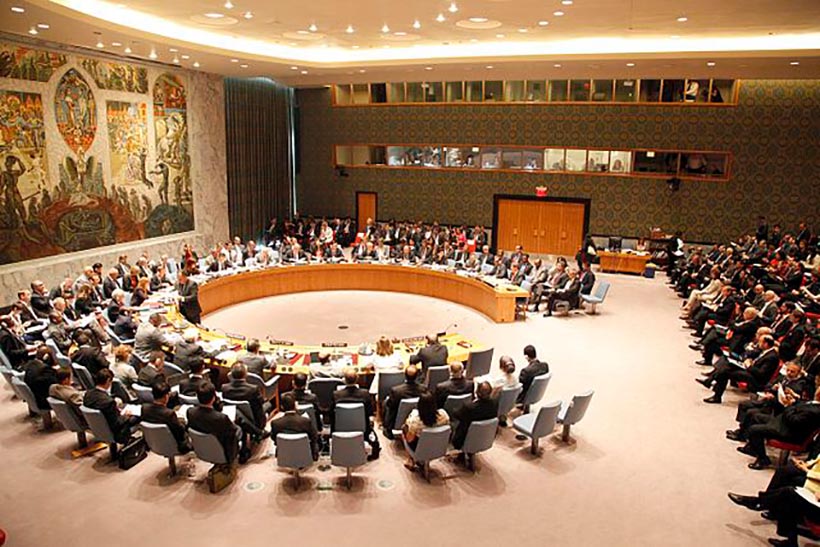With the participation of experts on the subject and the recent call for coordinated action, the UN Security Council discussed for the first time the new realities faced by the so-called “artificial intelligence” of the international community.
In his speech, Secretary-General António Guterres noted that while it has the potential to accelerate global development and the realization of human rights, AI can reinforce prejudice and discrimination and enable a new level of authoritarian surveillance.
At the same time, he stressed the need to “work together on artificial intelligence that bridges social, digital and economic divides and does not divide us further.”
Jack Clark, co-founder of Anthropic [1], He pointed out that while artificial intelligence can bring enormous benefits, it also poses threats to peace, security and stability in the world, as it can be abused and unpredictable, which are two essential characteristics of artificial intelligence systems. For example, he noted that while an AI system could improve understanding of biology, it could also be used to build biological weapons.
He also strongly cautioned against leaving it exclusively to the private sector because of the risks associated with its use. He warned that without investment in developing robust and reliable rating systems, “the international community risks leaving the future to a small group of private sector actors”.
Meanwhile, Professor Yi Zeng of the Institute of Automation of the Chinese Academy of Sciences pointed out that today’s artificial intelligence is information processing tools that, although they seem intelligent, lack real understanding. “For this reason, they cannot be trusted as responsible agents who can help people make decisions,” he said.
Imran Sharaf, the UAE’s deputy minister of science and technology, said UN member states must set agreed standards “before it’s too late” and called for mechanisms to prevent AI tools from promoting hate, disinformation and disinformation that can fuel extremism and fuel conflict.
The representative of Ghana, on the other hand, stressed that the international community must “curb the excesses of individual national ambitions for military dominance”. He has pushed for the development of frameworks to regulate AI for non-violent purposes, citing as a positive example the use of this technology by the United Nations Support Mission in Libya (UNSMIL), enabling improvements to the country’s 2022 Global Peace Index, but cautioning against integrating AI into autonomous weapons systems.
The speaker from Ecuador also opposed the militarization of AI and emphasized the danger posed by lethal autonomous weapons. He warned that “turning conflict into a mechanism represents a major challenge to our efforts in the field of disarmament and an existential challenge that this Council ignores and puts at risk.” He added that artificial intelligence can either contribute to peace efforts or undermine them, stressing that “our responsibility is to encourage technological development and make the best use of it to make peace possible.”
The representative of China on the Security Council pointed out that the good or bad of this technology depends on how humanity uses and organizes it, and how the balance is achieved between scientific development and security. He stressed that the development of artificial intelligence must ensure safety, risk awareness, fairness and inclusion, calling on the international community to put ethics first and ensure that technology always benefits humanity.
Finally, James Cleverly, the UK Secretary of State for Foreign Affairs, Commonwealth and Development, who takes over the Council presidency in July, speaking in his national capacity, noted that AI can improve or disrupt global strategic stability, challenge basic assumptions about defense and deterrence, and raise ethical questions about accountability for deadly battlefield decisions. Referring to the possibilities offered by this technology, he concluded with William Shakespeare’s quote from his play Julius Caesar:
“There is an ebb of men’s actions; on realizing the ebb, it leads us to happiness.”
with Information Provided by United Nations Press.
Translated from English by Anja Schlegel Created by the volunteer Pressenza translation team. We are looking for volunteers!
[1] Anthropic PBC is an American AI startup founded by former members of Open AI and financially backed by Google.

“Alcohol buff. Troublemaker. Introvert. Student. Social media lover. Web ninja. Bacon fan. Reader.”







More Stories
“A ban would destroy seven million businesses” » Leadersnet
What are the opportunities available to the company?
Dirty Deals – Refugee deal between Great Britain and Rwanda